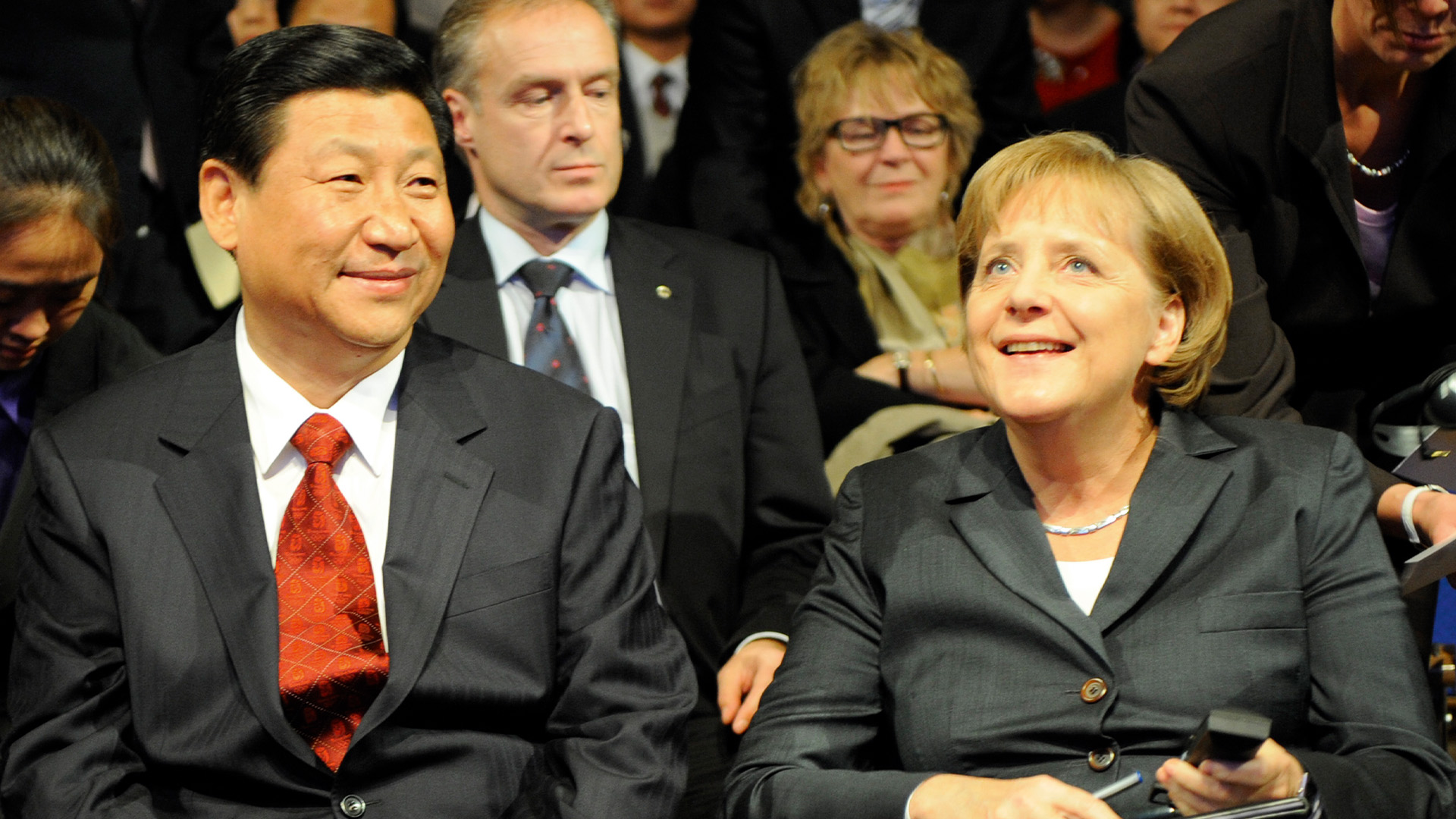You are viewing your 1 free article this month. Login to read more articles.
Frankfurt at 75: 1999-2023, politics and protest
As the Frankfurt Book Fair celebrates its diamond jubilee, we take a daily look at its past from The Bookseller’s archives.
2003: Hall’s Stone tell-all goes unturned
In the plus ça change department, 20 years ago The Bookseller’s then-deputy editor Joel Rickett (now Ebury managing director, no less) reported: “In the absence of headline-grabbing books, conversation at Frankfurt 2003 was full of grumbles, and speculation over the future of the event. With cuts in the editorial teams sent by large US publishers such as Simon & Schuster, Scholastic and Random House, several crucial exhibitors talked of reassessing their commitment. Macmillan UK (conducting some business for its absent US sister company) asked all its export and rights customers if it would make a difference if it was not at the Messe. As Jane Friedman, HarperCollins c.e.o., said: ‘I’m not sure, if we did a profit and loss account, that Frankfurt would work out in our favour.’
“With prolonged downturns in many markets and the dominance of email as a contact and trading tool, the world’s largest book fair looked vulnerable.”
2007: Hall’s Stone tell-all goes unturned
Sixteen years ago,The Bookseller Daily reported on the biggest deal at the Messe, one that even then was becoming a rarity – a true “book of the fair”, agreed at the fair – as agent Ed Victor signed and sealed a seven-figure deal for the “explosive and intimate” memoir from Jerry Hall, who was to “lift the lid” on her 24-year relationship with Mick Jagger. Harper NonFiction m.d. Belinda Budge and HC US senior vice-president Jonathan Burnham concluded the deal with Victor on the HC stand. Happy days.
But the book never appeared, and the “why?” is still a mystery. Hall reportedly delivered but HC was said to be unimpressed due to the paucity of the expected intimate detail, which could not be fixed even after rewrites. Many speculated Sir Mick’s lawyers might have got involved. Whatever happened, two years on Hall gave back her advance (she complained to the Daily Mail that she had already paid tax on the fee); she would eventually do a memoir-manqué photography book with Quadrille, My Life in Pictures (2010), which sold 2,400 copies in the UK. Who knows, might HC be interested this year in a tell-all from Hall about her most recent ex-husband, one Keith Rupert Murdoch?
2009: Merkel and Xi agree to disagree
The measure of Frankfurt’s importance as an event that seeps outside the relatively narrow confines of the book industry can be gleaned by the politicians it attracts, with G7 heads of state regularly rocking up. Sure, it helps that Germany is one of those G7 nations and its chancellors are FBF frequent fliers – including Olaf Scholz this year. By contrast, a sitting UK prime minister has never attended the London Book Fair, nor has a serving president been at Book Expo America. Angela Merkel twice opened FBF, once with Emmanuel Macron during France’s Guest of Honour stint in 2017 (a joy that year was the rolling of eyes of Frankfurt staffers when asked how working with the French GoH committee had been); the other with China’s Xi Jinping in 2009 (OK, Xi was the vice-president at the time, but viewed as the de facto leader).
China’s GoH that year was controversial and a perhaps uncomfortable fit for a fair that prides itself on championing free speech. But FBF boss Juergen Boos insisted “the role of the book fair is not to be political, it is to listen to other cultures. We provide a stage, a platform for discussion.” The debate was exacerbated in the weeks before the fair when China banned several authors from attending. The chancellor, in full “Mutti Merkel” mode, chided Xi during her opening speech, insisting China must engage with speech and human rights issues: “There can be – and I am sure there will be – no taboos in these discussions.” Xi did not engage, his address being some bland guff about opening borders.
During FBF 2009, Western publishers did not challenge their Chinese counterparts. A cynic might say a trade reeling from the credit crunch, and uncertain about digitisation, was too busy looking at the honeypot that China might represent to care about silly things like free speech and human rights.
At any rate, the level of condemnation was perhaps encapsulated in this organ’s Philip Jones’ report from that opening ceremony: “There was one small protest, unnoticed by most in the hall, as one attendee held up A4 pieces of paper with the names of what appeared to be ‘missing’ Chinese dissidents written in Chinese and English. The protest began during the speech of Xi, and continued throughout Merkel’s address, which followed. There was no attempt to prevent the protest.”













